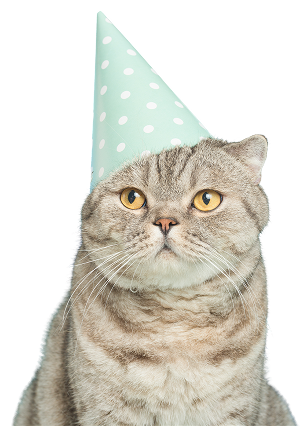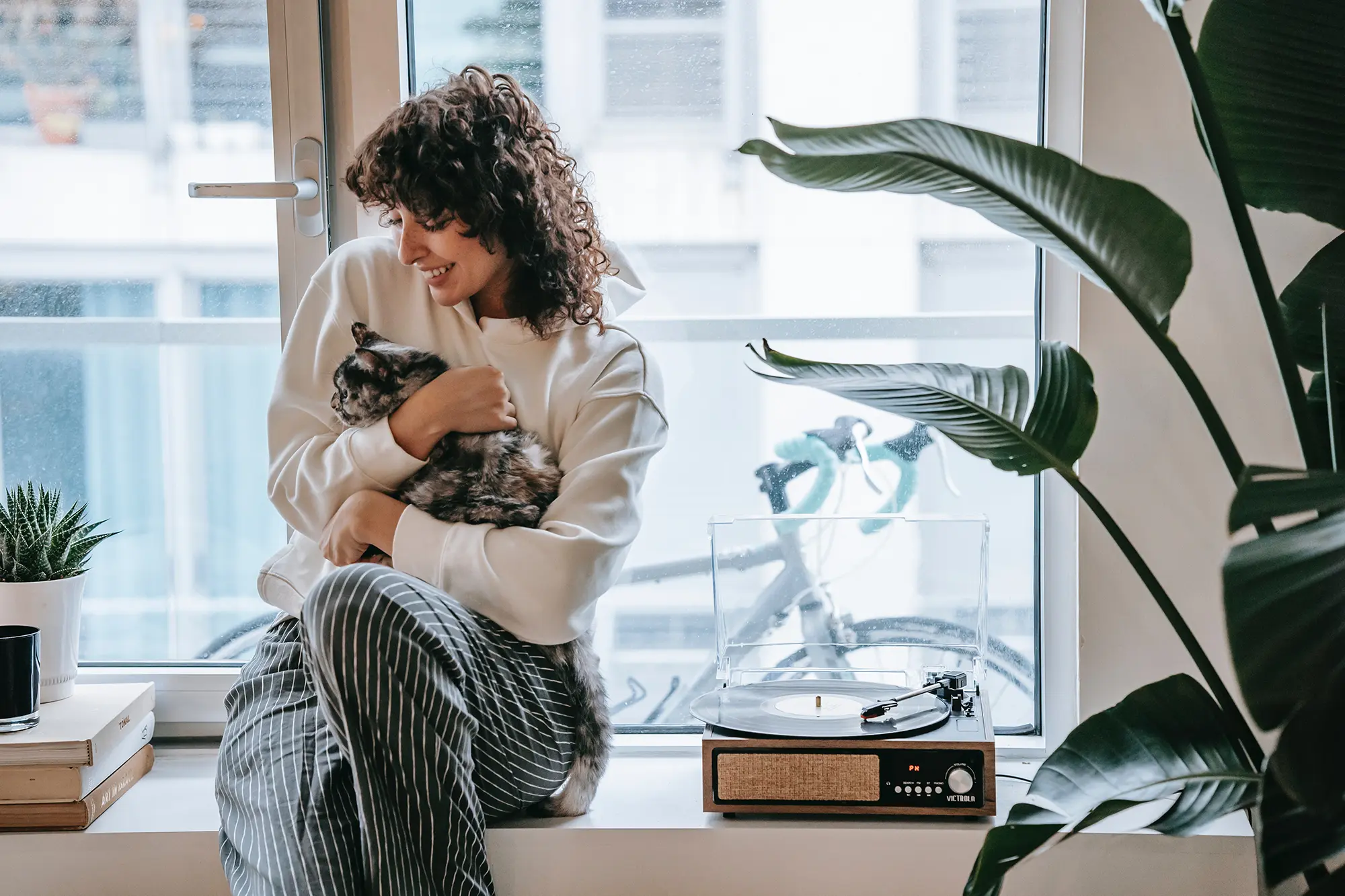why do cats purr?
Author: PawPots Team
 25 Jun 2025
25 Jun 2025
 3 min
3 min That soft, rhythmic sound your cat makes while curled up beside you might seem simple—but there’s a lot going on behind the scenes. So why do cats purr, really?
Let’s break it down in a way every cat parent can understand.
Purring Isn’t Always About Joy
Many assume that a purring cat is always a happy one. Often, that’s true—especially when they’re being petted, lounging comfortably, or falling asleep.
But cats also purr in situations that don’t seem joyful at all:
When they’re anxious or afraid
While in pain or discomfort
During vet visits
After an injury or surgery
This shows that purring can be a form of emotional regulation, not just a display of contentment.
How Does Purring Work?
Purring happens when a cat’s brain sends signals to muscles in the voice box (larynx), causing them to twitch rapidly. This movement makes a vibration as air passes through, producing that classic purr sound—both while inhaling and exhaling.
Pretty amazing, right?
Why Do Cats Purr?
There are several reasons cats purr—here are the most common ones:
1. Feeling Safe and Relaxed
The most well-known reason: your cat is calm, happy, and feels secure. You’ll often hear this when they’re resting, cuddling, or being gently stroked.
2. Calming Themselves
Cats may purr to soothe their own nerves during stressful situations—like meeting new people, being at the vet, or hearing loud noises.
3. Bonding With Their Mother
Newborn kittens begin to purr while feeding. Mother cats also purr to comfort them. It helps the litter stay connected, especially when their eyes and ears aren’t open yet.
4. Promoting Healing
Scientific research suggests that the vibration frequency of purring may encourage muscle and bone recovery, and reduce pain. It’s believed to be one of nature’s tools for healing.
5. Asking for Food
Some cats develop a “hungry purr”, which blends a regular purr with a higher-pitched meow. It’s their clever way of nudging you for a snack.
What Should You Do When Your Cat Purrs?
The key is to notice the context.
If your cat is lying beside you with slow blinks and relaxed paws, that’s probably a sign of contentment. But if they’re hiding, injured, or restless, their purring could be a way to manage pain or fear.
Watch their:
Body posture
Eyes and tail movement
Appetite and behavior
If anything feels off, it’s worth checking in with a vet.
Final Thoughts
Purring is more than just a sweet sound—it’s a form of emotional and physical expression. From comfort and connection to stress relief and recovery, it plays a powerful role in a cat’s life.
By learning to recognize what your cat’s purr really means, you’ll deepen your understanding of their feelings and needs—and build an even stronger bond.
So next time your cat purrs, tune in. They might be sharing something deeper than you think.

Give Back The Love
Show your love to your pets with our high-quality, delicious and healthy meals! Show your love to your pets with our high-
quality, delicious and
healthy meals!






